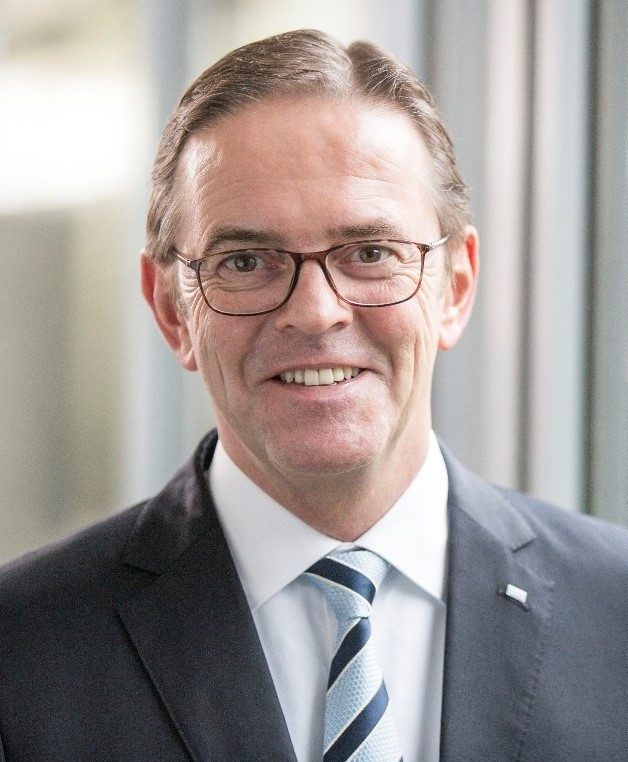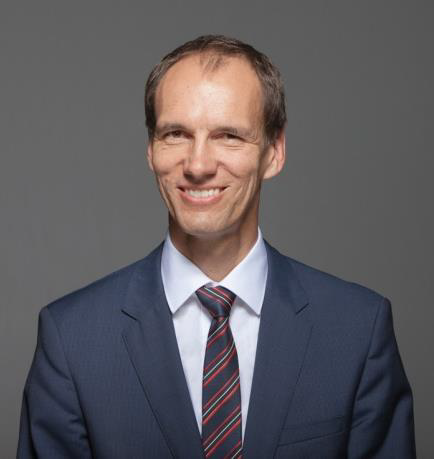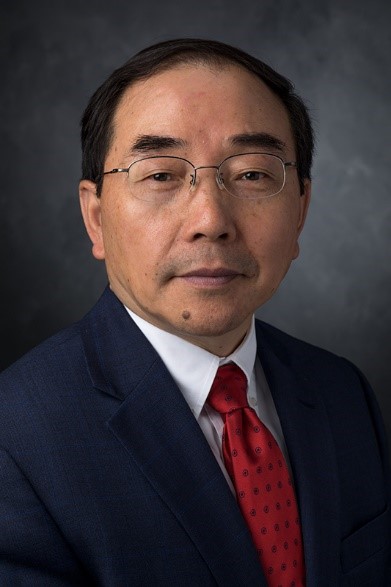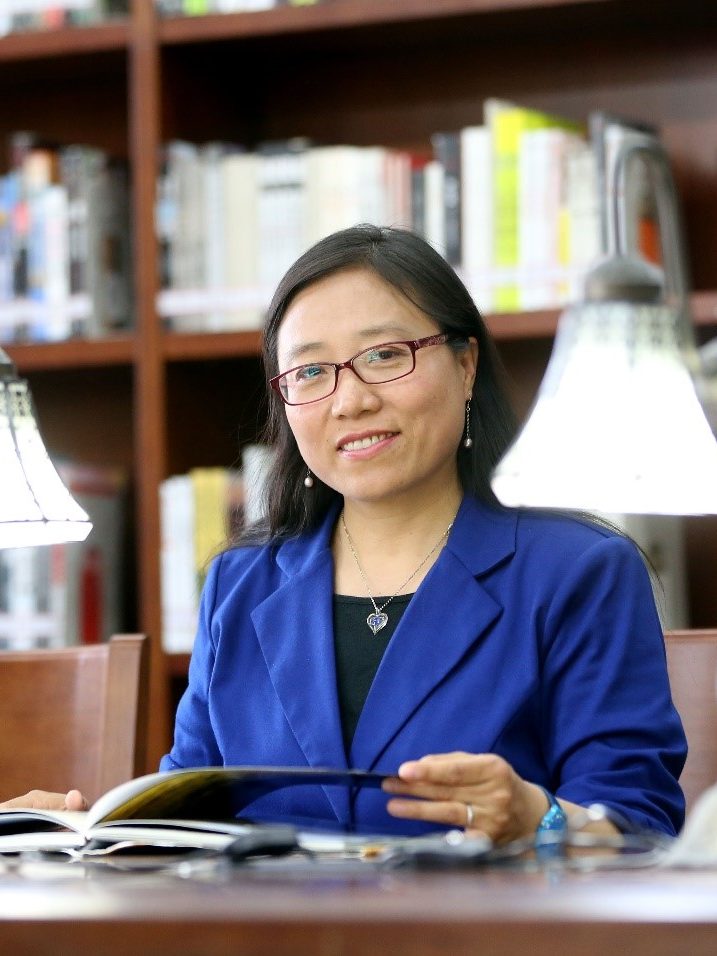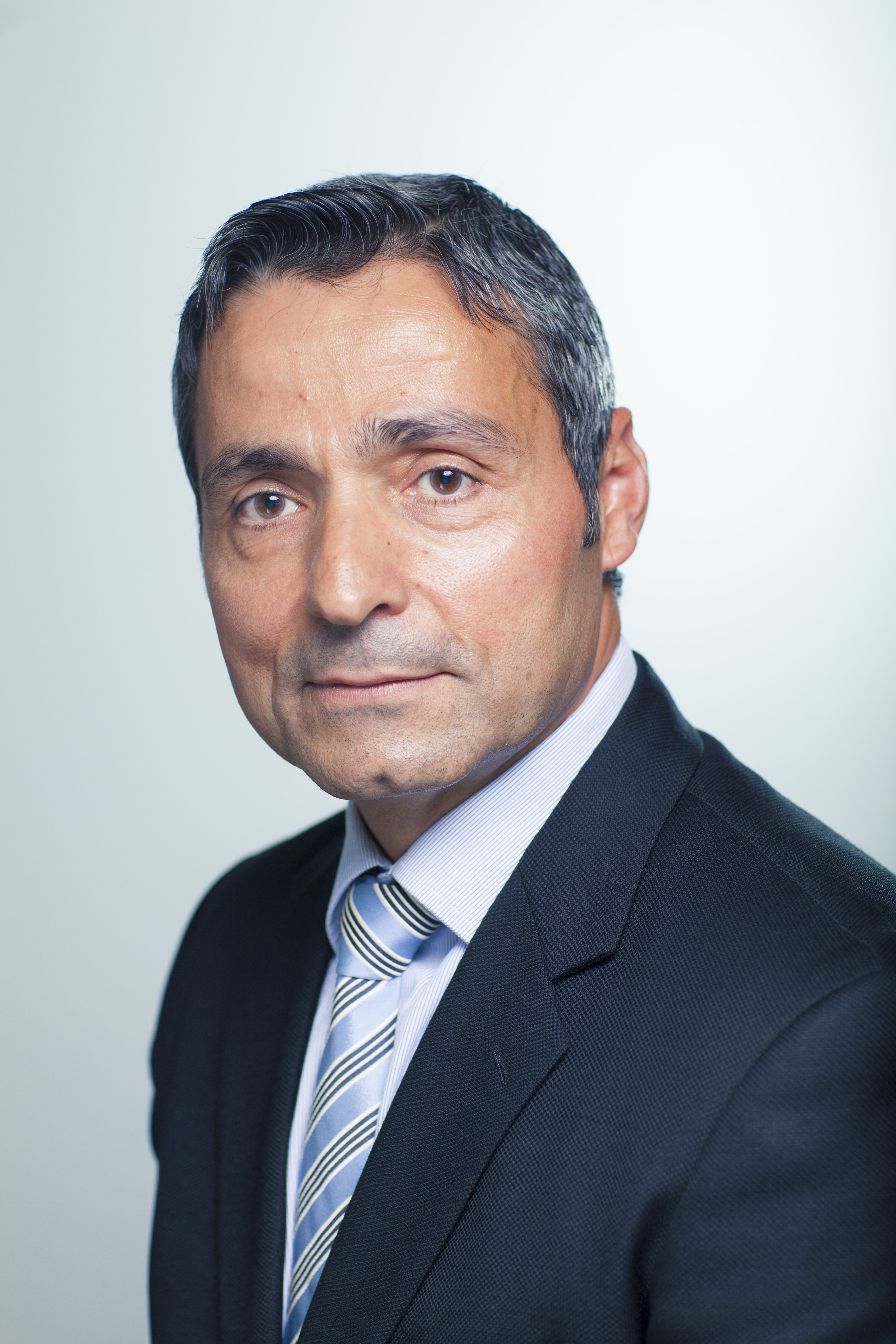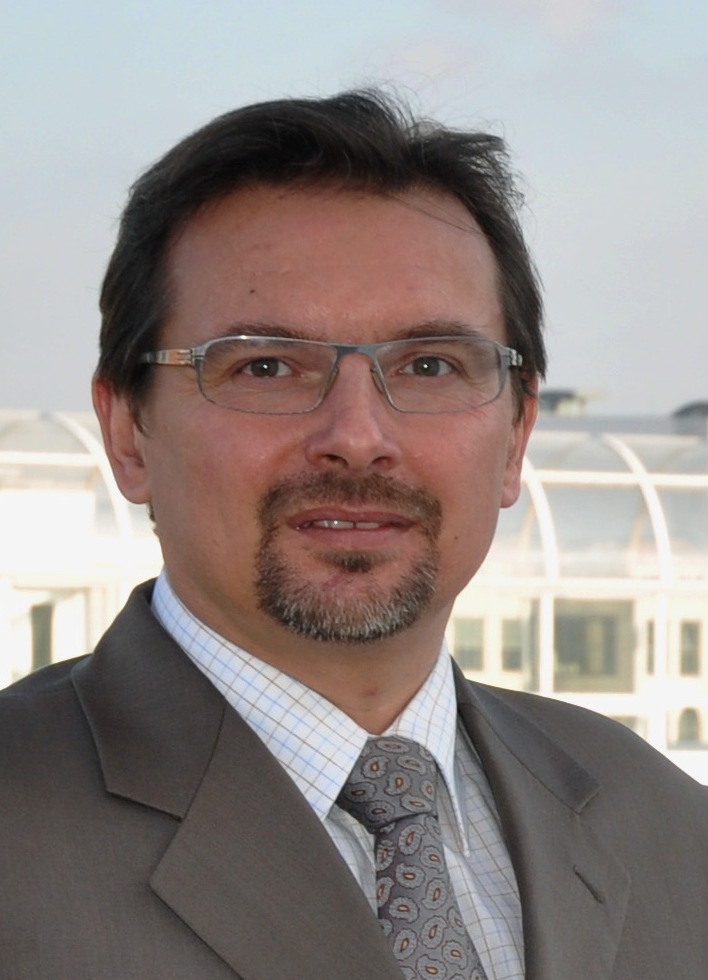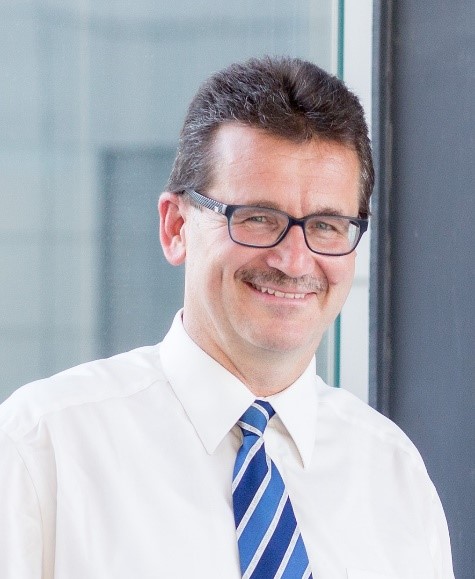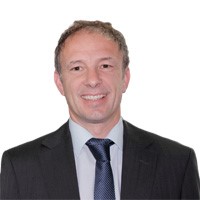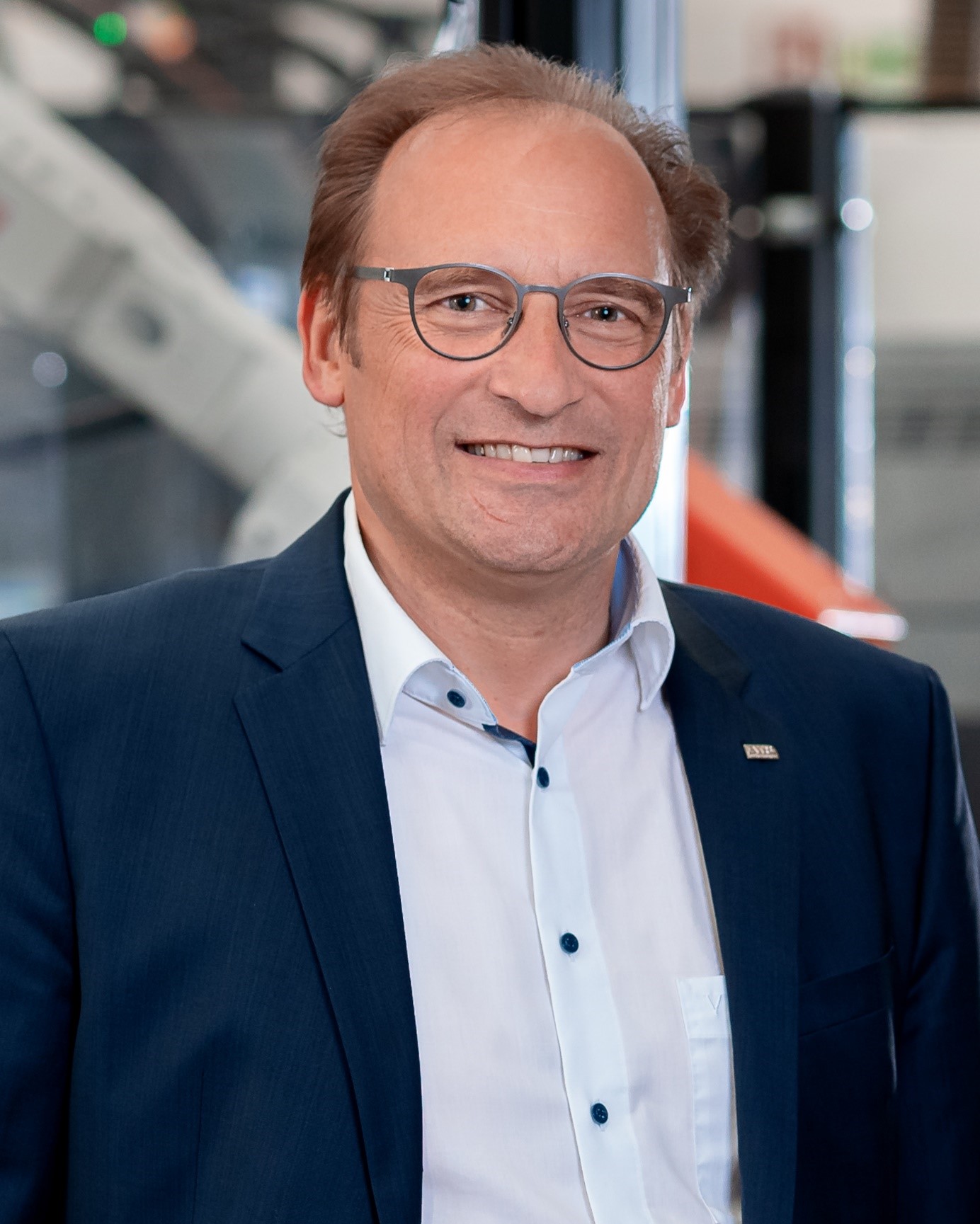Keynotes
The Dürr Group is one of the world’s leading mechanical and plant engineering firms with extensive expertise in automation and digitization/Industry 4.0. It mainly supplies the automotive industry, followed by the woodworking and general industries. In 2018, the Dürr Group generated sales of € 3.87 billion.
In the last few years, sustainable products and manufacturing as well as sustainability in the supply chain have developed a great deal of momentum. End-consumers attach increasing importance to green products and production processes. Car and other manufacturers have to step up to the challenge. Carbon-neutral production and efficient, low-consumption products are examples of this green shift.
“Safeguarding sustainability” is one of the Dürr Group’s central corporate values. The Dürr Group ensures sustainability by developing resource-saving, efficient products with low rates of consumption. In comparison to 2005, Dürr’s paint shops now require 2/3 less energy.
The Dürr Group is a key enabler for its customers: Through its products, it enhances sustainable manufacturing. It provides innovative products and offers intelligent software solutions for efficient and smart production. Smart, data-based analyses improve the production process and promote sustainable manufacturing by reducing energy and material consumption.
Bio:
born in 1961 in Germany is chairman of Dürr AG since January 1, 2006; appointed until June 30, 2023 and has joined Dürr AG's Board of Management as of January 1, 2005.
He is responsible for:
- Measuring and Process Systems
- Public Relations
- Human Resources (Employee Affairs Director)
- Internal Auditing
- Corporate Compliance
- digital@DÜRR
Membership in statutory supervisory boards:
- ADAMOS GmbH, Darmstadt
- HOMAG Group AG, Schopfloch (chairman, part of the Dürr Group)
- Körber AG, Hamburg
- Schuler AG, Göppingen
- additional positions within the Dürr Group
Ralf W. Dieter joined Dürr AG's Board of Management on January 1, 2005 and has been Chairman of the Board of Management since January 1, 2006. After completing his studies in business administration, he joined DAT AG in Ratingen, where he held various management positions. From 1995, Mr. Dieter worked as a manager for IBM in Germany and France. In 1999 he became President and CEO of Carl Zeiss Industrielle Messtechnik GmbH, Oberkochen. Mr. Dieter joined the Dürr Group in May 2003 when he took over as CEO of our subsidiary Carl Schenck AG (Darmstadt). In this position he was responsible for the profound restructuring of the Schenck Group.
Dr. Achim Alexander Feinauer
Managing Director of EMAG GmbH & Co. KG
Title:
Sustainable Manufacturing as a business case for a machine tool builder
Sustainability for machines tool is defined by social, ecological but also economical parameters. Product life cycles are getting shorter and shorter and the products are getting softer and softer.
Social aspects are mainly driven by an easy usability and ergonomics. Therefore, the machine tool has to be adapted to different markets and cultures. Localization of HMI, intuitive handling and peripherical equipment is one major points for success.
Energy consumption for the production, daily usage and reconstruction is one key factor for sustainable manufacturing. Ecological aspects are getting more and more an essential point for investments. How to deal with those changes as a production system provider for classical machine tools?
EMAG machines, dedicated for the mid-size and high-volume production of precise metal parts typically last for 20 years and more. Since many years, EMAG machines are made of MINERALIT. This material allows being recycled for the construction of roads and the casting procedure will need almost no energy. In between the machine will get a retooling, sometimes a retrofit and for the networked production there will be a future fit with a redigitalization as part of sustainable machine tools.
Investment cost per annual capacity, number of parts per kilowatt-hour is typically positive influenced by the latest outstanding processes and technologies. Networked production with highest OEE value finally guarantees for sustainable and economical by means profitable production.
Bio:
| 1/2014 – today | EMAG GmbH & Co. KG, Salach |
| 1/2014 – 12/2014 | Managing Director COO |
| 1/2015 – 12/2018 | Managing Director COO / CMO |
| since 1/2019 | Managing Director COO / CTO |
| 4/2003 – 12/2013 | STAMA Maschinenfabrik GmbH, Schlierbach |
| 4/2003 – 12/2004 | Vice General Manager Steady growth and doubling of the turnover from 2003 to 2008. Profitable even during the crisis in 2009. Quick and profitable recovering after the crisis. |
| 1/2005 – 12/2013 | General Manager Mainly resp. for technics and production, sales and services. |
| 2/1997 – 3/2003 | Ex-Cell-O GmbH, Eislingen/Fils |
| 6/1998 – 8/2000 | Product manager machining centers |
| 8/2000 – 12/2000 | Vice President of Design (mechanically). Announced for attorney |
| 1/2001 – 12/2001 | Head of Mechanical Design and Engineering. Machining Centers |
| 1/2002 – 3/2003 | Head of Design and Engineering. Member of Management |
Prof. S. Jack Hu
UGA Foundation Distinguished Professor, University of Georgia
Title:
Joining of light-weight and dissimilar materials for transportation fuel efficiency and sustainability
The transportation industry consumes about one third of all energy and 71% of all petroleum used in the US to move people and goods. Combustion of gasoline and diesel fuels create harmful emissions to the environment, including carbon dioxide, as well as particulate matter, oxides of nitrogen, carbon monoxide, and unburned hydrocarbons. Over the next twenty years, the total number of miles driven by Americans is projected to grow by 40%. In addition, the rapid development of automotive transportation in developing countries will further aggravates this critical challenge. Clearly, the existing consumption pattern in the transportation sector is not sustainable.
Reduced vehicle weight leads to smaller size engines, better fuel efficiency, and reduced emissions. It was reported that every 100 kg weight reduction could lead to a fuel saving of 0.5 liter per 100 km and a reduction of 9 g CO2 per km. Modern car body structures can be constructed with a mix of materials to optimize performance while reducing weight. However, one critical challenge in manufacturing multi-material automotive structures lies in the joining these dissimilar materials since the existing methods of fusion welding (including gas metal arc welding and traditional resistance welding) and adhesive bonding fail to provide cost effective solutions. This presentation will provide two innovations in joining for vehicle light weighting, one hybrid method for joining aluminum to steel and another method of ultrasonic welding for joining carbon fiber composites. Process models and performance models will be presented for these two methods. Challenges and future work in these areas will be summarized.
Bio:
Dr. S. Jack Hu joined the University of Georgia as UGA Foundation Distinguished Professor and Senior Vice President for Academic Affairs and Provost on July 1, 2019. In this role, he oversees instruction, research, public service and outreach, and information technology at the University of Georgia. The vice presidents of these four areas report to him, as do the deans of UGA’s 17 schools and colleges and the campus dean of the Augusta University/UGA Medical Partnership. The Vice Provost for Academic Affairs and the Vice Provost for Diversity and Inclusion and Strategic University Initiatives, as well as associate provosts for academic fiscal affairs, academic programs, faculty affairs, global engagement, the Honors Program, and the libraries, also report to him. Prior to joining the UGA, he was the Vice President for Research, the J. Reid and Polly Anderson Professor of Manufacturing, Professor of Mechanical Engineering, and Professor of Industrial and Operations Engineering at the University of Michigan.
Dr. Hu has authored or co-authored nearly 200 peer-reviewed journal articles related to his research in manufacturing systems, assembly, and engineering statistics. He holds six patents, and worked closely with several industry partners to enhance manufacturing quality and productivity.
Hu is a member of the US National Academy of Engineering and a foreign member of the Chinese Academy of Engineering. He is a Fellow of the American Society of Mechanical Engineers, the Society of Manufacturing Engineers, the International Academy for Production Engineering (CIRP), and a foreign member of the Chinese Academy of Engineering. He is the recipient of several professional awards and best paper awards.
Prof. Li Jing
School of Economics, Capital University of Economics and Business, Beijing, China
Title:
Common development: understanding Belt & Road Initiative in Context of New Normal
Chinese president Xi Jinping proposed to jointly built a “Silk Road Economic Belt” and a “21st Century Maritime Silk Road” in 2013, the proposals we called “Belt & Road Initiative” (BRI), which attracted attentions from the international community. By now, many queries raised about the BRI: is it a Chinese Marshall Plan; a Tributary System; a new colonialism; a debt trap or another creditor-based imperialism? BRI is different from current international or regional cooperation mechanism like EU, CPTTP or APEC, etc. This speech will concentrate on background, philosophy, cooperative mechanism, the outcomes and challenges of BRI. The background of BRI is Chinese economic structural reform and new features of globalization. The Chinese economy has experienced long-term rapid economic growth, but it is heavily imbalanced, it needs switch from extensive economic growth model to intensive growth model which it is based on innovation. China pledged to improve TFP, and then realize high quality growth. The rise of China cannot separate from globalization, and China is an actively player and beneficiary of it. After 2008, China’s reform and opening up entered into a new stage, as both of the Chinese economy and world economy were entering into New Normal. China aims to build and extend its new economic network. The concept of BRI is common development; the philosophy of it is China’s traditional righteousness, it is beyond economic growth and distribution. The cooperative mechanism of BRI will be conducted through mutual consultation, cooperation and coordination. And this mechanism is getting multiple because of diverse development of BRI countries in geography, culture, economy, politics and society. “five links” are specific goals of BRI, which can be realized by diverse approaches: economic corridor, international capacity cooperation and industrial parks and so on. BRI has achieved some positive outcomes in five links, however, many challenges ahead. First, China will face more complicated governance task. BRI is a national initiative, state and enterprises will be highly involved, to make the goals of state and firms compatible is not an easy job; investment return is uncertain because of political, economic and social risks in BRI countries, protection mechanism is urgently needed; at present, most cooperation is bilateral, with more openness, common rule should be developed, multiple mechanism will work together; the creditor position of China will be impacted by de-globalization and escalation of China-US trade conflicts; to set up a bridge need strong piers, the goal of common development will offer the BRI countries to take free ride of rapid Chinese economic growth. BRI is a new pilot for China reform and opening up, crossing the river by touching stone, China will develop its wisdom to realize the common development in BRI countries.
Bio:
Li Jing, professor of economics, School of Economics, Capital University of Economics and Business (CUEB), Beijing China. She got Ph.D. in economics at Institute of World Economics and Politics (IWEP), Chinese Academy of Social Sciences (CASS) in 2002, and joined Research Centre for International Finance (RCIF) of IWEP from 2002 as a guest research fellow. Her research field is international economics and international public policy. Her expertise is exchange rate and capital controls, monetary cooperation, renminbi internationalization and the international monetary system reform. She started to do research on renminbi internationalization from 2003 and finished project The Current Situation and Prospects of Renminbi Internationalization sponsored by Chinese Reform Foundation (CRF) in 2004, The Impacts of the Renminbi Internationalization Process on Chinese Economy and Countermeasures sponsored by National Social Science Foundation for Young professionals, NPOPSS, as the project leader in 2005. She contributed to Urgent Project of National Natural Science Foundation: The Roadmap of the Renminbi Internationalization in 2011. She has published three books in renminbi regionalization, capital account liberalization and choice of exchange rate regime since 2006. She was awarded “Great wall Scholar” in 2017, “Top 60 Young Professionals” by Beijing Municipal Government in 2006, and “Excellent Talents in University”, by Ministry of Education, in 2011. She created international student’s symposium Understanding the World in 2016 at CUEB.
Prof. Sami Kara
UNSW, School of Mechanical and Manufacturing Engineering
Title:
Absolute Sustainability and the Role of Manufacturing in a Resource Constraint World
Manufacturing, as an enabler, underpins the living standards of our society. As a result, in the last three decades, the manufacturing industry has made a significant improvement in productivity and eco-efficiency of the product and service provided to meet the growing needs of the world population. Despite this, there has been unprecedented growth for the energy and resources demand, and the associated environmental impact in the same period. This growth is predicted to increase further with the growing population and the affluence. In the meantime, our understanding of sustainability has changed from relative to absolute with the realisation that the earth has a limited ecological carrying capacity and resources. This presentation will look into challenges the manufacturing industry will face in this constraint environment. It will further elaborate on how to facilitate societies living standards with limited resources into the future.
Bio:
Professor Sami Kara is a researcher and a lecturer in the School of Mechanical & Manufacturing Engineering, UNSW. He is also the founder and academic-in-charge of the Sustainable Manufacturing & Life Cycle Engineering Research Group at UNSW (LCE@UNSW). In addition, Professor Kara, together with Prof Christoph Herrmann, is the joint-director of the Joint German-Australian Research Group (JGARG) "Sustainable Manufacturing and Life Cycle Management".
Professor Kara is an engineer with a PhD in manufacturing. He has a professional background of 30 years in industry, research and tertiary education, including several engineering and management positions in manufacturing companies in Australia and around the world. In 2000 he joined UNSW and since then has successfully completed s number of projects, mainly industry-driven, in the area of Reuse and Recycling of products, Energy and Eco-efficiency of product and processes, Life Cycle Assessment and Costing, with various applications such as nanotechnologies, composite materials and aircraft components.
Professor Kara is a member of the Institute of Engineers Australia and a fellow of the International Academy of Production Engineering (CIRP).
Prof. Holger Kohl
Vice-Director, Fraunhofer Institute for Production Systems and Design Technology IPK;
Director, Division Corporate Management, Fraunhofer Institute for Production Systems and Design Technology IPK;
Professor, Sustainable Corporate Development, Technical University of Berlin, Germany
Title:
Increasing Challenges for Sustainability for Manufacturing Industry based on Global, National and Technological Initiatives
Abstract:The world has always been undergoing constant change. For a long time, this change has been mainly shaped by natural evolution, but with increasing growth of economies and population as well as technological development mankind is more and more forced to emphasize sustainability tasks to secure quality of life. Diverse global and regional initiatives with enormous impact on all areas of human living in the field of trade, infrastructure or production are shaping the world with increasing speed. To cope with the growing challenges such as climate change, scarcity of resources or increasing social pressure, a combined sustainability strategy of companies, investors, civil society and the public sector is essential to secure a prosperous future. This keynote introduces supra-regional initiatives of infrastructure and production and outlines approaches to manage related sustainability challenges. Standards, tools and methods to assess and mitigate risks and to give guidance are presented.
Bio:
Prof. Dr. Holger Kohl is Vice-Director of Fraunhofer Institute for Production Systems and Design Technology IPK and Director of the Division Corporate Management at Fraunhofer IPK, Berlin as well as Professor for Sustainable Corporate Development at the Technical University of Berlin. He finished his studies in Business Engineering at the Technical University of Berlin and at the Haas School of Business at the University of California, Berkeley, in 1998. In 1999, Prof. Kohl joined the Division Corporate Management at Fraunhofer IPK as a Senior Researcher. Since then he has initiated and conducted several national and international projects on Strategic Planning, Knowledge Management, Intellectual Capital, Benchmarking and Business Process Reengineering and was responsible for their realization. Beside projects all over Europe, Prof. Kohl managed large-scale projects in Brazil, Indonesia, Vietnam, Malaysia, UAE, Egypt, China, etc. Since 2015, he is the Dean of the international master’s degree program on Global Production Engineering (GPE) at Technische Universität Berlin and Chairman of the GPE examination board. Since 2015, he is a Chairman of the Global Conference on Sustainable Manufacturing (GCSM). His primary research interests are in the area of Sustainable Manufacturing, Strategic Planning and Implementation of Innovation Systems, Intellectual Capital Management, and Benchmarking, in both the public and private sectors, as well as in the industry and service sectors.
Mr. Volker Sauer
Senior VP of Manufacturing and Technology in Bosch Rexroth China
Title:
Harmonizing Sustainability and Connected Solutions in the Factory of the Future
The world is changing. This information should not surprise you. It is the natural flow of things, the technological progress. Industrial production has already undergone three fundamental, revolutionary changes over the last centuries and we are now witnessing and taking part in its next “evolution”. Fast integration and flexible configuration facilitate the adaptability of Industry 4.0. People, machines, processes, and flows of goods are connected. We have been one of the first movers in the realization of integrated concepts with i4.0 equipment.
We implement the leading provider and leading user strategy for I4.0. This strengthen Bosch on its way to become one of the leading IOT companies. We are lead users with more than 270 plants worldwide. We use the newest solutions and innovative development in our production facilities. On the other hand, we are lead provider of technology and solutions for our internal and external customers. We only offer solution to the market, where we have already proven experience and capability in our Bosch factories.
As a leading operator for Industry 4.0 Bosch and Bosch Rexroth has developed a vision for the Factory of the Future based on project expertise in own plants. Starting with digital configuration of the end product through a fully digitalized value stream, completely connected machinery will manufacture serial and custom-made goods with maximum flexibility independent of lot size with new benchmarks in cost benefit ratio.
Bio:
Mr. Volker Sauer has 38 years’ working experience in Bosch with various manufacturing automation knowledge and achievement. Mr. Sauer’s current engagement is i4.0 concept development project in Bosch worldwide. Currently Mr. Sauer is responsible for production and technical Development of Bosch Rexroth Products in China. He is working in the last 7 years in China managing all factories and R&D centers of Bosch Rexroth with approximately 3000 associates in four locations. He was the plant manager of Bosch Homburg - one of the i4.0 pilot factories in Bosch. He is promoting and developing Industry 4.0 since many years.
Our health is our most valuable property. Our several organs contribute to our entire health. An essential organ for our survival is our teeth. It is inevitable that we carefully maintain our teeth and in case of damage or natural wear we replace them by artificial tooth. Almost all of us know the traditional procedure of replacing a tooth. Several dates at dentist and several dental steps are necessary. All is very time consuming. Following Sustainable Development Goal Nr. 3 of United Nations the academy and the industry are obliged to deliver solutions for an effective dental therapy. Thanks to digitalization currently it is possible to leave the dental clinics by one stop with a new tooth. After having scanned the mouth the necessary tooth can be designed by 3D CAD system. Transferring the CAD Data to dedicated machine tool the tooth will be produced on the spot in the clinics. The dentist can insert it and make the final adjustments. Although this procedure is fully automated a dental expert is still necessary. The data created by CAD system have to be checked and edited following the deep knowledge of the dental expert. Providing total solutions for dental purposes and increasing the efficiency of dental therapy will contribute to dental health not only in developed countries but also in developing and emerging countries with high and increasing population.
Bio:
| 10.2017 – heute | SCinvest GmbH – Managing Director and Partner |
| 01.2008 – 01.2017 | imes-icore GmbH - Managing Director and Partner |
| 11.2002 – 12.2007 | SCinvest GmbH – Managing Director and Partner imes-icore GmbH - Managing Director and Partner imes-icore Holding GmbH – Managing Director imes-icore USA Holding Inc. - Managing Director Pritidenta Holding GmbH - Managing Director SCinvest GmbH – Managing Director and 100 % Shareholder imes-icore GmbH - Managing Director / CEO and Partner imes GmbH – Founder, Managing Director and Partner |
| 08.1989 – 10.2002 | isel automation Eiterfeld – Sales Director |
| 07.1986 – 07.1989 | Henschel Kassel – QA Engineer |
Successful companies and entrepreneurs are responsible for their company as well as for their employees, but also for the society. This was and still is the principle of Matthias Weigele and his brother Frank in leading the EWS Group for the last 25 years. With “Heart4Children Deutschland”, they laid the foundation of Kimbilio (refuge) in Tororo/Uganda, together with Jakobus Richter, one of today’s members of the board of association and a Ugandan couple. Because of the wide spreads of Aids, Uganda has over 2 million orphans. The entrepreneurs are recognizing their task in this project.
Kimbilio is a boarding school where orphans receive a home, food and education, which means a chance of a happy life. Education is the foundation for a sustainable and responsible development of every country. The stated goal is, to offer the young people after their school education a vocational training accordingly. There are ambitious plans for that already. The number of children, living on the campus, has been growing to over 300 since the foundation in 2006.
Bio:
Matthias Weigele, born 1964, has done his engineer education after school and military service at the University of Applied Sciences in Esslingen 1989. After that he graduated in business administration. His career started as a designing engineer for automotive parts at Heller Machine Tools in Nürtingen Germany.
After 3 years he went into the small family business EWS with 20 employees at that time. At the beginning, he was responsible for sales and designing, and 1994 he became, together with his brother Frank Weigele, Managing Director. Today the EWS Group, with over 500 employees worldwide, is world market leader in the field of tool clamping technologies for CNC-lathes and multi-tasking machines. Matthias Weigele is Legal Representative in the production company EWS Korea, located in Changwon and Chairman of the Board of Command tooling Systems, based in Ramsey/MN USA. With EWS he won several Awards and recognitions including the innovation price of the state of Baden-Wuerttemberg in 2006.The company is listed in the book: “German world market leaders since 2010” until today as well as in the book: “The best of German Mittelstand”. In 2017 EWS Germany won the innovation price of the county Goeppingen for EWS.CyberCon4, a new sensor technology for Industry 4.0 and the MM Award on EMO-Show Hannover.
He is founder and Vice president of Heart for Children. This organization runs a Boarding school in Tororo Uganda with over 300 Children and 56 staff members.

